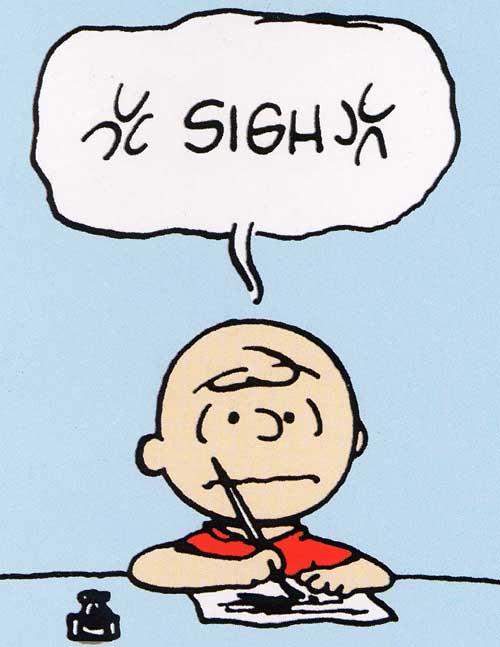So, SWOT VAC starts next week…! Last semester the wonderful tutors came up with some strategies on how we think is the most effective way to cram for your finals. This semester, we are here to share with you how we think are the most effective ways to deal with stress!
Michael Start by keeping things in perspective. Remember that you will survive and that in a few years university study will be a distant memory (unless you decide to do post-graduate research, in which case study will become your life). Visualize the end of the semester – imagine how nice it will be when all your assignments are in. Secondly, listen to your body. Stay hydrated (people never seem to realize how important this is) and get enough sleep. You can’t expect to perform well without enough shut-eye. ‘Round-the-clock schedules only really work in the final few days of an assignment. Lastly, prioritize your tasks: start with the most important (usually the biggest), and work down through to the least important (usually the flotsam and jetsam at the bottom of the pile). Many people make the mistake of thinking “I’ll just sort out these few things then get on to the big stuff”, but unfortunately this method rarely works well, as it is usually just a form of procrastination.
Dawn Plan ahead and study smart. You will be less stressed if you have a plan of what you have to focus on in the lead-up to the exams. You can also study in groups and test each other. This is an excellent way to improve in areas you are experiencing difficulties. Make sure you are also having adequate hours of sleep, eating proper food and exercising regularly!
Kimberley
- It just doesn’t make sense to stay up all night cramming only to then fall asleep during the exam. Sleep is necessary to consolidate what you just read into memories.
- Don’t be shy to follow any superstitions if they make you more comfortable, regardless of what others may think. I still sleep with all my books under my pillow the night before my exam (Caution: May result in neck pain the next day)
- It’s great that you can multi-task, but having your books in front of you while you watch the latest episode of Big Bang Theory or playing DOTA shouldn’t be one of them.
- If you start to feel overwhelmed with the massive amount of work still left to do, write it down and start prioritising. Keep calm and do what is important first.
Greg Whenever you’re in a tight spot, try to imagine yourself marooned on a beautiful desert island. When you rest, you are a king surveying your estate. Look at the woodland, the peacocks on the lawn. Be the king of your own calm kingdom. When you’re feeling under pressure, do something different. Roll up your sleeves, or eat an orange. Be on the lookout for things that make you laugh. If you see nothing worth laughing at, pretend you see it, and then laugh. Add a drop of lavender to your bath, and soon, you’ll soak yourself calm!
Boon Han
- Remember: there’s no point studying if you are tired or aren’t in the mental state to do so. So just go sleep it off whenever you feel the need to.
- Alternatively, you can always take a walk around the park, or go around the House disturbing the others who are studying, but please don’t distract them too much…
- A 14-hour study plan in a day is never going to work, so plan for an 8-hour day on average. This gives you a better idea of how much you can (or cannot) do.
- We all know that 9GAG, YouTube and Facebook are good ways to take a break. But be warned, you are not taking an exam in the latest trending posts on social media, so don’t spend more time than you need to on them 🙂
- Want to take a short but effective break? Take an old season of sitcom (e.g. BBT, HIMYM) which you have watched before, and watch an episode (30-40 minutes) as your ‘break-out’ and have a good laugh.
Tessa Do something physical – go for a walk, run around the park, gym, dance – whatever suits you best! If you’re feeling stressed or overwhelmed, like things are getting on top of you, being physically active helps you to feel empowered and ready to tackle challenges. Also it gets the blood moving and helps you to re-energize, refocus and get motivated for study!
May For me, one of the best ways to manage stress is to listen to good music every day. There’s no specific genre, it can be Bastille, Bach, Nine Inch Nails, Chet Baker, Björk, Brian Eno, whatever. Listen to something that takes you out of the study cave to somewhere fun and relaxing.
Nhat Best way to manage stress is to have an effective study plan. Give yourself time to rest in between study sessions. Also know your exam time table well. If you have all your subjects in the first week of exams then start studying now! For those with all their exams on the last week do not leave the study until after SWOTVAC, start going through your lectures and make summaries so you can easily review them closer to your exam. Managing stress is all about time management, have objectives that you want to achieve in one day and follow through with it.
Cameron Stress is something that we all experience at certain times. It’s completely natural, but it can be more detrimental than useful if we don’t recognise it in ourselves and learn how to manage it. This is a personal thing and will be different for everybody, and it’s important to learn what works for you, but for me the key to managing or relieving stress is to break the routine and the environment in which I am feeling stressed. Course work is the perfect example, and sometimes it can simply be the cumulative effects of repeated strenuous moments experienced in the same place, for example, at my desk in my room. My advice would this: break the mould, break the habit and break the routine. Take a night off. Spend a night indulging in an activity completely separate from that which stresses you – perhaps music, for example. Or escape the environment and spend a night at a friend’s house instead. Learn what works for you, and give your mind a break from time to time.
Harry Start Early: Starting early is an incredibly easy way to reduce your stress load when exams come around. Instead of having a week off followed by a week of study, flip it around. That way if you find you need more time then you have it, and if you don’t then you’re still getting the same amount of time off!
Set a target for the day: once you hit that target then take the rest of the day off. Take regular mini-breaks: Going for a walk or getting a drink can keep you fresh and help you be more productive when you commit to working. Distractions such as chatting with friends should generally be avoided, but it’s important to take regular mini-breaks and feel that you’re ALLOWED to take them. No-one has to work for 5 hours straight, that’s crazy. You’ll work much more productively over those five hours if you take 5 minutes off every now and again.


